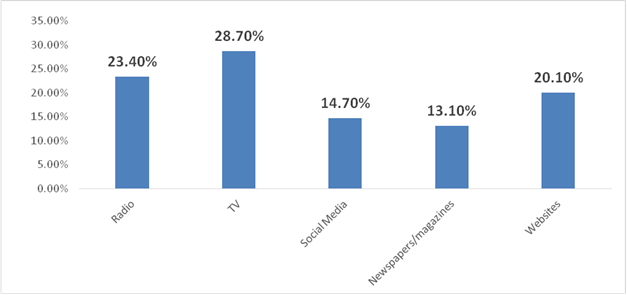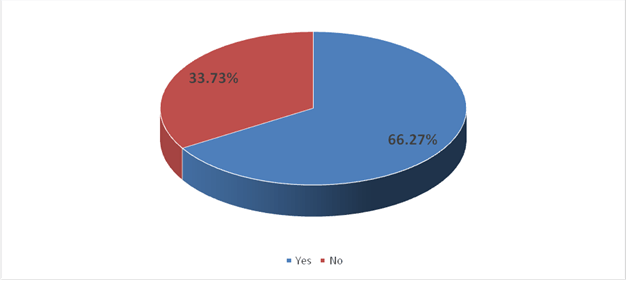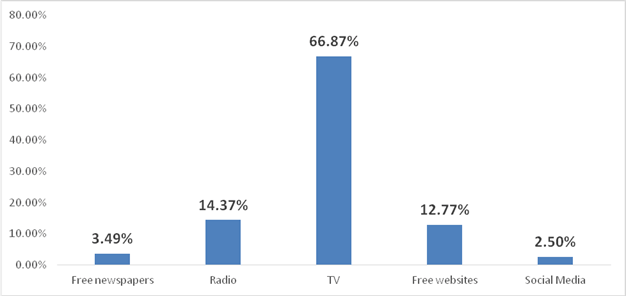A survey carried out by PR agency 4mediarelations saw that British consumers are still using (and in many cases preferring) traditional broadcast media channels such as television and radio to keep up-to-date with news.
Two-thirds of those surveyed said the media they trust most for accurate news content is television. When asked where they’d expect to hear breaking news from first, 28 per cent said television and 23 per cent said the radio, with only 14 per cent stating social media.
Where would you expect to hear breaking news first?

David Cotgreave, managing director of 4mediarelations, says that there appears to be a shift in public behaviour with Brits turning back to traditional broadcast media to get their news content, with two-thirds surveyed saying the reason for doing this is down to online sites introducing pay walls. The main media those surveyed said they would turn back to is television.
Which alternative form of media would you use if more websites introduce paywalls?

With more online sites using paywalls (subscriptions) will you turn to traditional media for your news and feature consumption?

Discussing what this means for online and print media, Cotgreave says: “While these media platforms will almost certainly never die out, it does emphasise that even though radio and television are two of the oldest forms of media, both remain very powerful today. With a constant stream of live news and a variety of high quality journalists, people can tune in – for free – to be kept up to speed on the latest news, all day long. If online sites are to continue introducing pay walls, they will run the risk of losing readers to alternative free forms of media.
Cotgreave says that although some may argue that social media could be the way to overcome this, only 2.5 per cent of those interviewed said they looked at social media for the most accurate up-to-date news and only 14 per cent said they’d expect to hear breaking news on social media first.
However, Cotgreave appreciates that online media is still very popular: “There is no way it is fizzling out with the likes of smart phones and apps having a big impact on media consumption. People use online media channels for more than just news – 61 per cent of those surveyed said they use websites for competitions. Others will turn to online sites to look for informative videos – with 53 per cent saying they would turn to news websites, closely followed by YouTube at 41 per cent and social media at 15 per cent. Having said this, 70 per cent said video content plays no part in their choice to read online articles.”
Which free media outlet do you trust the most to give you accurate news updates?

With television and radio being so popular, PR people cannot afford to forget broadcast PR and the power it has to influence people. Cotgreave concludes: “One key difference in broadcast and print media is that once the information is handed over to a TV or radio station, it is very much in their power to say whatever they want on a story. This therefore means that PROs now need to establish relationships with broadcast journalists that are built on trust and ensure that the information they pass over is accurate and geared towards a successful campaign.”
Methodology
The research was carried out by 4mediarelations’ sister company Atomik's research on a nationally representative panel of 1,000 people in June 2013.
If you enjoyed this article, sign up for free to our twice weekly editorial alert.
We have six email alerts in total - covering ESG, internal comms, PR jobs and events. Enter your email address below to find out more:




